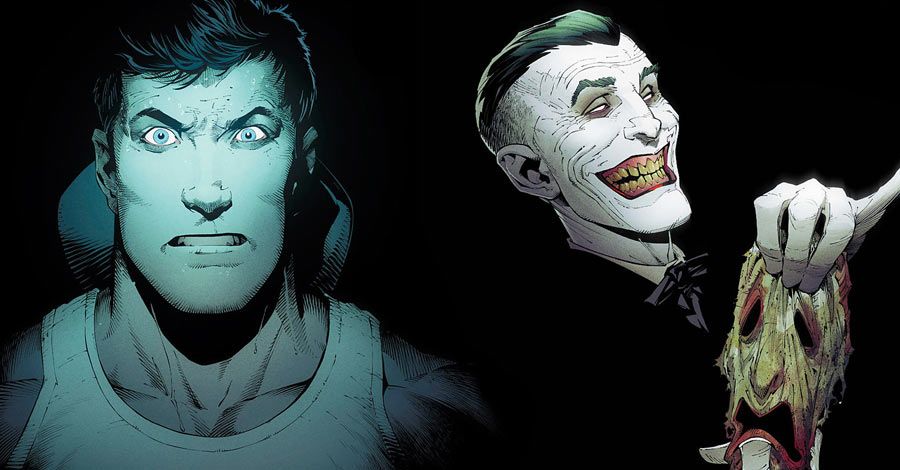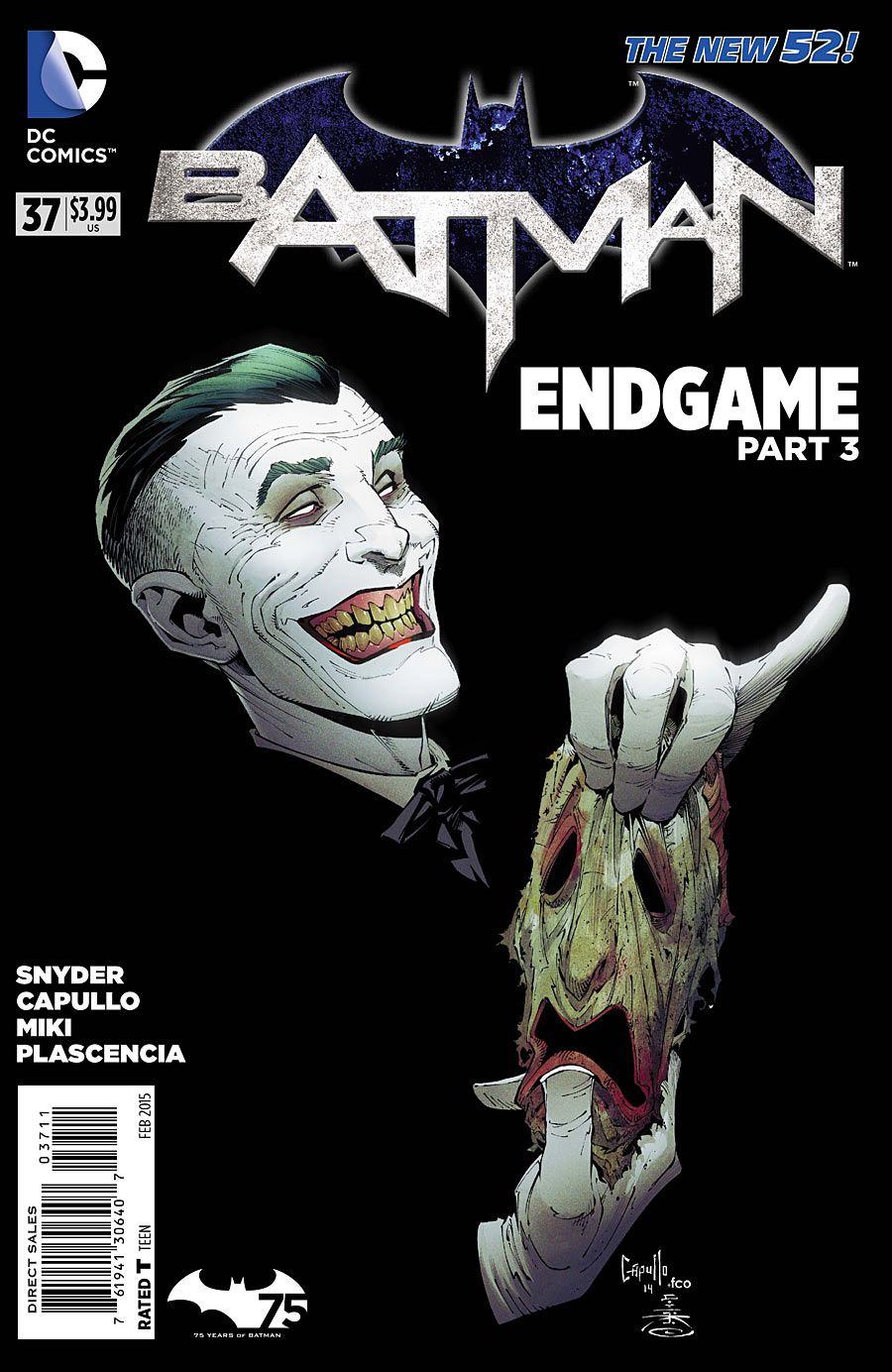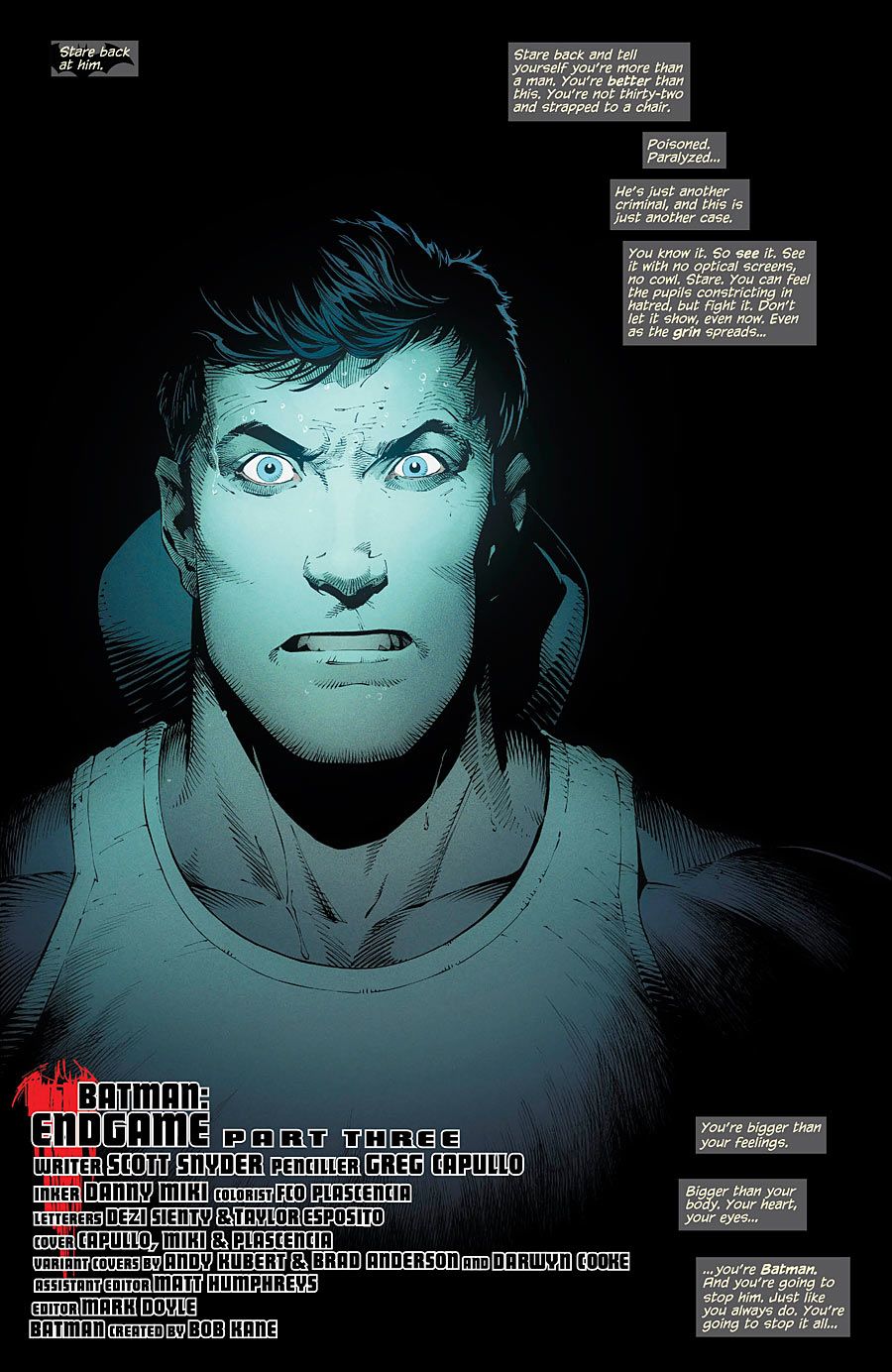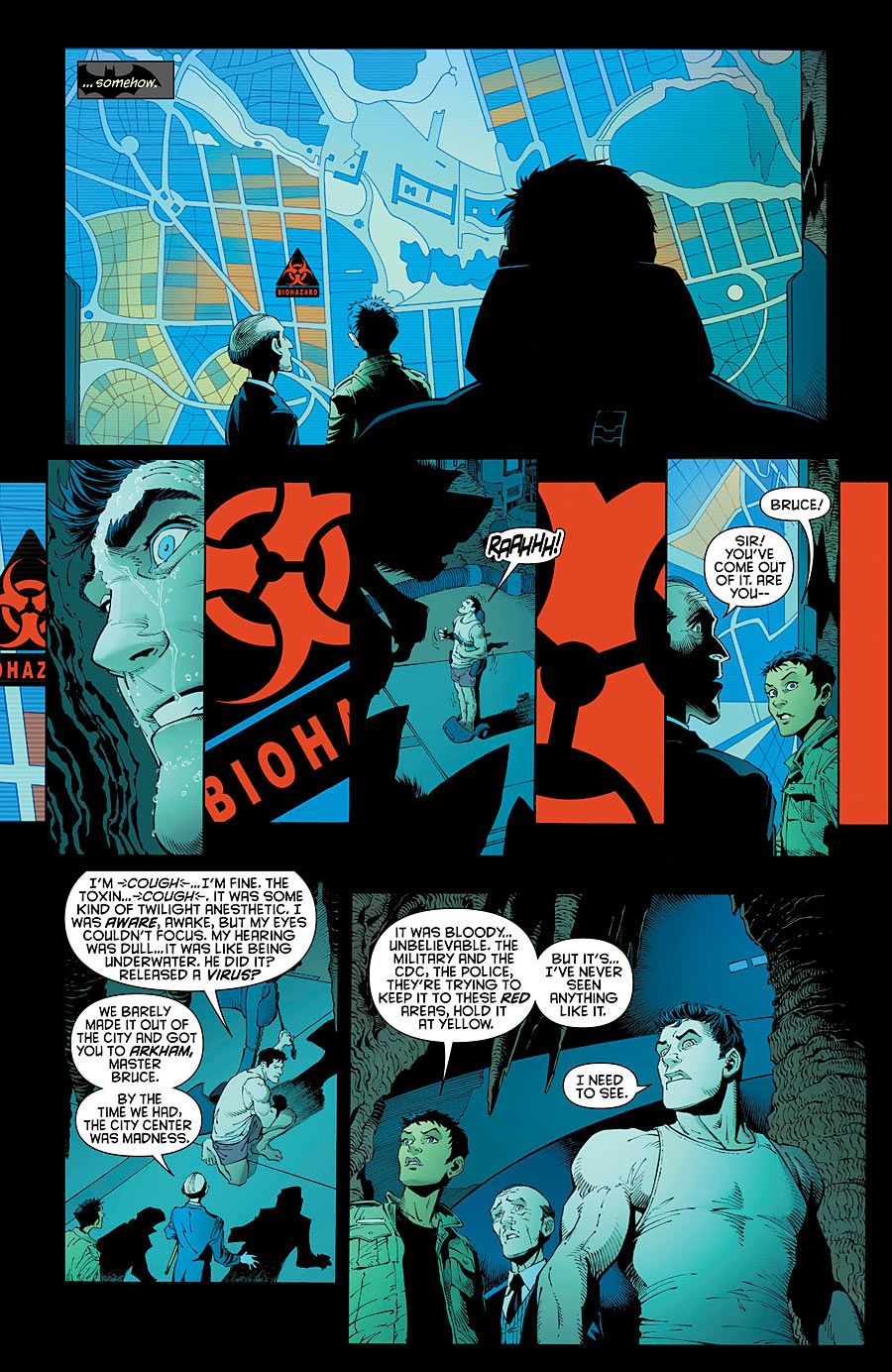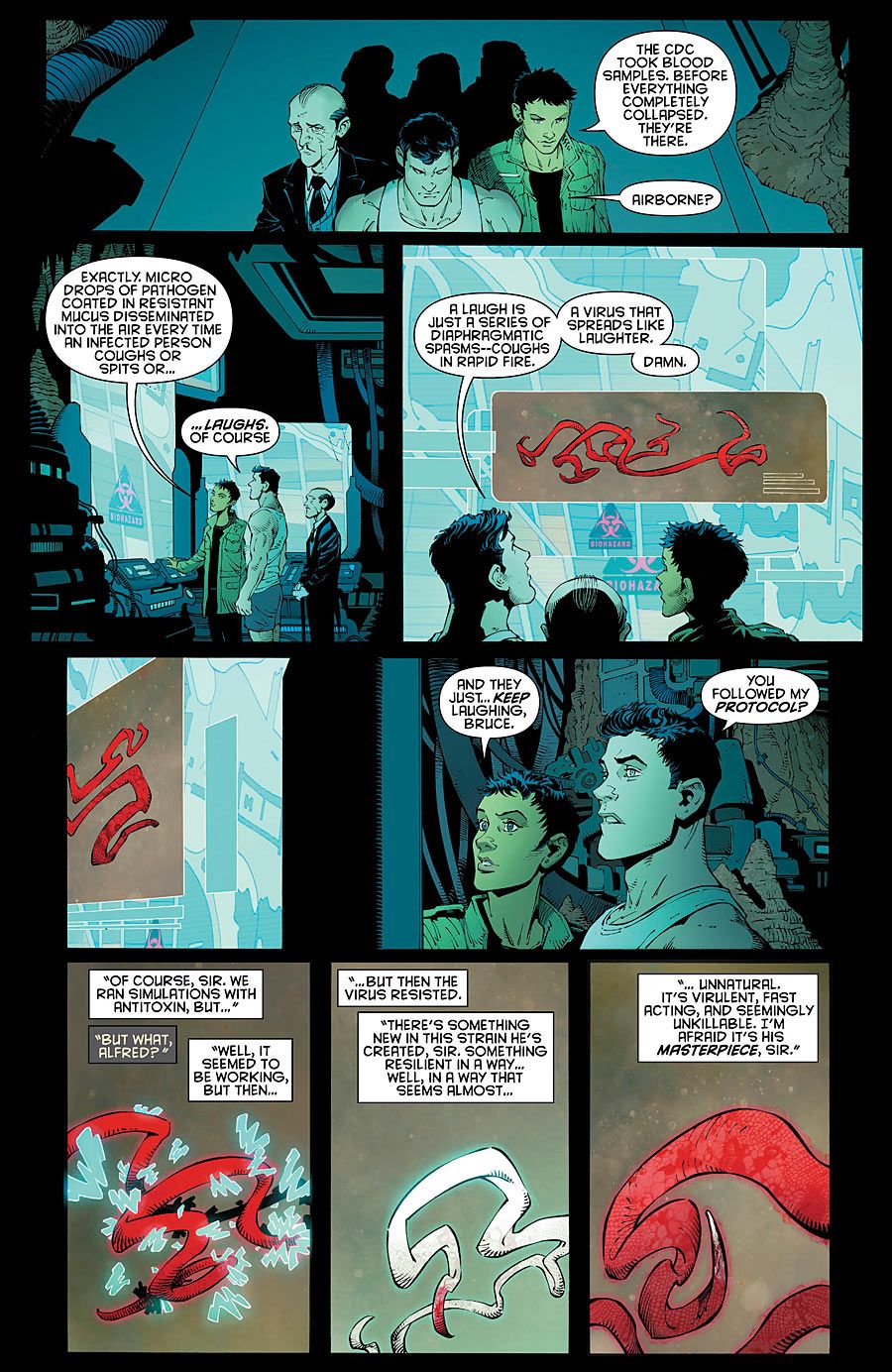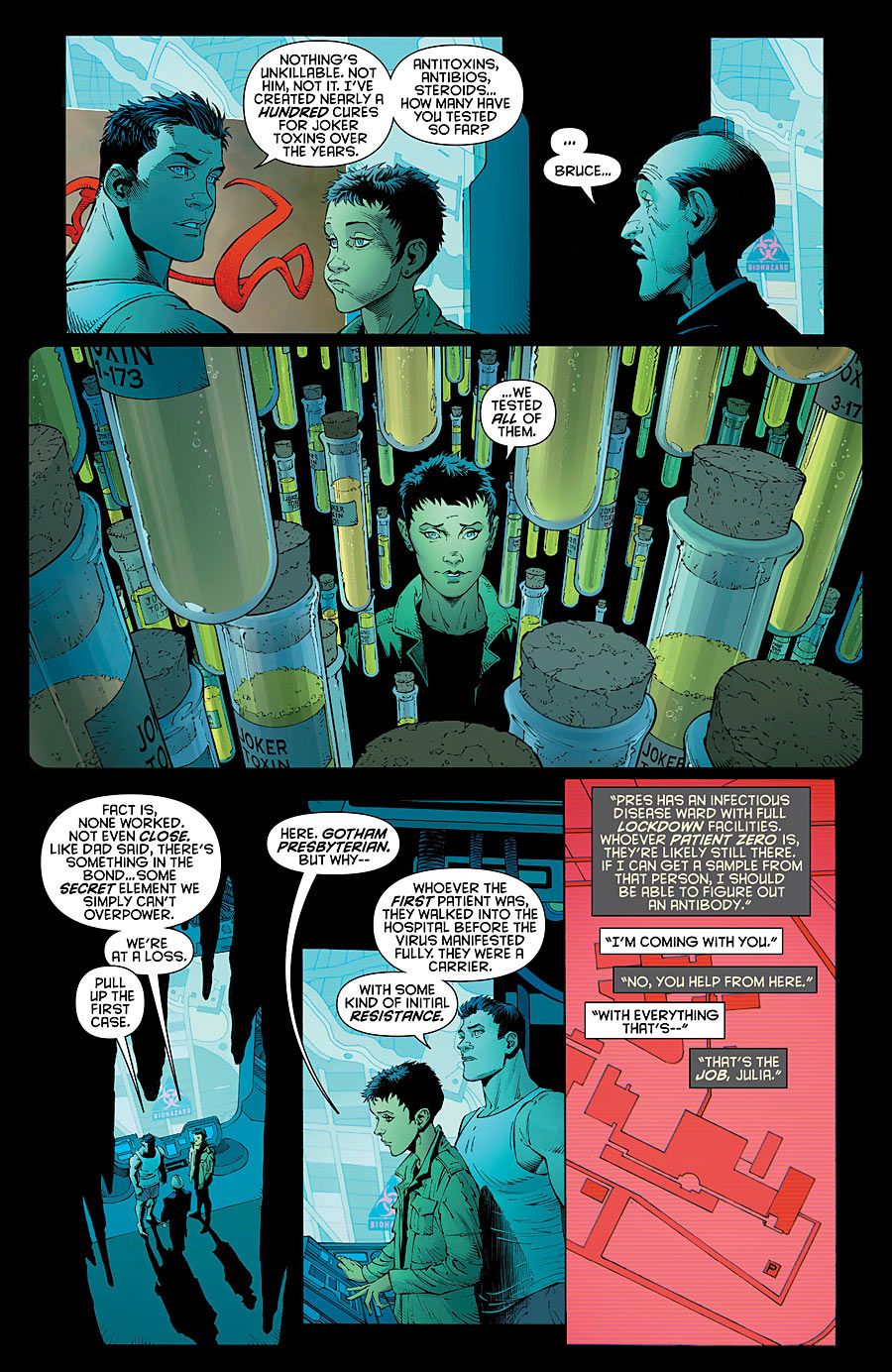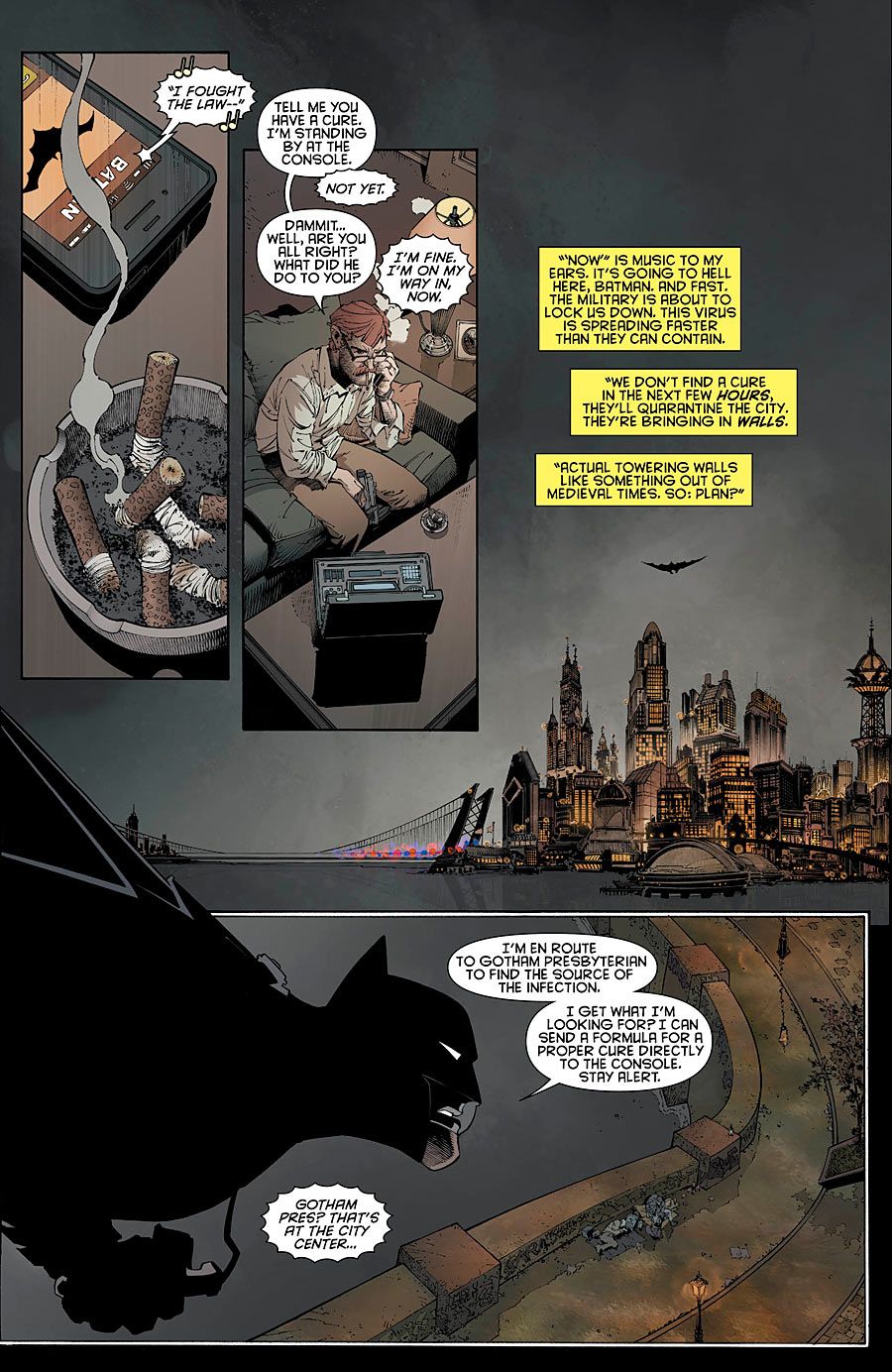[SPOILER WARNING: This article contains major spoilers for "Batman" #37, which is available now.]
A bestseller for DC Comics since the dawn of the New 52, "Batman" by the superstar creative team of Scott Snyder and Greg Capullo plays the game of blockbuster storytelling without fear.
Sadly for Bruce Wayne, that's not the case when The Joker comes to Gotham as the Clown Prince of Crime is back (believably from the dead) in the current "Endgame" story arc and he's cranking up the fear factor to Joe Rogan-esque proportions.
With "Batman" #37, the third issue of the "Endgame" story arc released today, CBR News connected with Snyder to discuss the ever-exploding confrontation between The Dark Knight and his arch nemesis and the fan-favorite writer digs deep into his own personal feelings on the fictional violence presented in comics juxtaposed with the real-world violence being unleashed on a daily basis in very real places like Sydney, Australia, Peshawar, Pakistan and right here at home.
Snyder Teases "Batman's" Future, "Wytches" Movie Developments, "American Vampire's" Return
Snyder also shared insight into Bruce's psyche as he counter-attacks a maniacal menace void of fear and why choosing to deliberately end the life of The Joker would prove to be Batman's ultimate failure and undoing.
Full spoilers ahead as Snyder also adds commentary to the final pages of the epic issue, which features a deadly faceoff between The Joker and long-time Batman ally, Commissioner James W. Gordon.
CBR News: With news breaking over the past 72 hours about horrific events in Sydney and Peshawar, does it weigh heavy on you as a comic book creator when you are writing terrible men like The Joker doing terrible things such as unleashing the Joker virus on the people of Gotham?
Scott Snyder: Yeah, it always crosses your mind. I think the idea is to never do anything in the book that feels in any way that it advocates that kind of horrific, evil violence or that in some way celebrates that or is in any way insensitive about those things. You do your best with a character like The Joker to make him the nightmarish villain that he is.
For me, The Joker isn't about random acts of violence against the city. The Red Hood for me, in a lot of ways, was a stand-in for the random violence that I'm terrified of for my children. The story in "Zero Year" is meant to have cyphers for the things that I am afraid of for my kids in the modern day world: superstorms, cataclysms, resource depletion, all of the post-apocalyptic zeitgeist is in there. And if you believe that The Joker was the Red Hood, he's meant to stand for random acts of violence, which is very scary.
But once The Joker is The Joker, he's all about terrorizing Batman. For me, The Joker doesn't represent any kind of justification or even a nod to the kind of crazy violence and terrible things that you see happening on the news simply because in the comic, his relationship with Gotham is purely about Batman. And Batman doesn't exist in the real world. People that find an affinity with the character and go out and do chaotic things is not who The Joker is to me. It doesn't necessary connect but, of course, you worry about those things as a writer all of the time. When you do dark, violent books like "Batman," "Wytches" and "American Vampire," you have to be very cautious and careful. Viruses, pandemics, all of these things are scary but ultimately, my goal is tell the best stories that I can and the most personal stories that I can. And this story is deeply personal.
As visceral and bombastic as it is, it's really about Bruce and The Joker and Bruce basically coming to terms with his mortality. He is realizing, in some way, that no matter how hard he fights, a terrible thing is coming, one way or another. And he won't be able to stop it. If I can tell story that means as much as this one means to me, and you do it with integrity, you have to be able to go to those dark places in fiction. Again, if you are doing it with a sense of purpose. All of the terrifying, terrifying, terrifying things that keep you up at night personally because you are afraid that they may have a corollary or someone might draw a co-relation to something in the real world, then you are going to end up doing stories that are ultimately a disservice to the reader.
Snyder Discusses His Final Joker Story, What's Next for "Batman"
You really get a sense of the urgency and fear The Joker brings to Gotham by Bruce Wayne's reaction to the situation. During this arc, he is constantly reassuring himself and talking himself through the situation. It's rare, but I see fear Bruce's eyes.
Yeah, Joker brings the worst fears to life. That's what The Joker means to me. And as a writer, that means there is no nightmarish place that you can be afraid of going. You have to make sure you're not being exploitative. But it doesn't mean you can't do things like fear of a pandemic like The Joker virus. There are all kinds of stories like that in the news but you can't not do it because if you do it in a way that expresses terror and expresses fear and you're careful and you're sensitive, it makes for great drama. It's a hard line to walk. I will say that openly. Comic books can be difficult. But at the end of the day, you have an internal compass as a writer and you know when you are doing something that makes you feel uncomfortable and you know when you are doing something that feels justified and the only thing that you can do it is follow that.
"Endgame" is really about Joker saying, "Let me show you how easy it is to end you. And the city. You think that you are larger than life because you Batman. And you think that you are bigger than your human body but I gave you a choice to be that [in 'Death of the Family'], I invited you over to my side so we could show that we are the stuff of legend. We are bigger than everything. But you rejected me and threw me off a cliff so now I am going to show you that I am actually that and you're nothing. You're just gristle and bone. And everything that you are doing is meaningless."
That's fear. [Bruce] has this idea that it's all going to end in cataclysm, in some terrible nightmarish way. And everything he does doesn't matter because it's all going to be wiped out by a tidal wave of terror and violence. That's what keeps me up -- that terrifying feeling. For me, if I was Batman, there'd be nothing scarier. "What did I do all of this for if it ends this way." There's a fear of the end. That's what this story is about and again, that's why it has to go to these dark places. You have to be true to the story while keeping your moral compass in check.
During "Batman" #37, Jim Gordon pieces together a backstory for The Joker, which may be even more troubling than previously believed, as he may truly be "The Eternal Prince" and hints that he may even be the Devil. Believed to be active as The Joker for only five years, Jim finds photos dating back to the 1910s with him in the background.
That's the mystery of the story. Is this real or is this not? Is The Joker even bigger than we even thought he was or is he just a criminal? Has he been around much longer? And maybe not even necessarily something supernatural but something older and scarier. Of course, Bruce and Jim don't believe it. That's why they are going out to disprove it. At this point, it's up to you as a reader to decide if it's possible or if it's not. And that's a fun part of the story, walking the line with you guys.
And I mean it makes sense that he is eternal. He gets away with a lot. [Laughs] Look at all of the things that he is able to pull off. There is always that fear that he is bigger than he says he is. And this story expresses that fear. Maybe Bruce has misjudged him all of these years. And The Joker has just been playing with him. Maybe this is the worst ending that you could possibly imagine not just to your relationship with him but to everything.
And again, what Joker does is he picks away at what's nearest and closest to you. He targeted Alfred in "Death of the Family" and in this issue, he comes face to face with Gordon.
[The Joker] looks for any sign of weakness. For me, the people that you care about are your biggest weakness and for Bruce, that's the people of Gotham. Again, The Joker is reducing him. In his own weird way in "Death of the Family," Joker was all about building Batman up. "Look how great you are. This is your castle. This is your royal court. I am your jester. You can be bigger than this. Forget all of rest this. Forget the people of Gotham." But when Batman rejected him, now The Joker is all about showing him how tiny he is compared to him.
RELATED: "Dark Knight Returns" Sequel In Talks with Miller & Snyder
I did some quick digging, but I believe in this issue we see The Joker call Batman "Bruce" for maybe the first time ever. And if it's not the first time, it's certainly a rare occurrence in 75-plus years of DC Comics.
Yeah, that's right. This issue is almost a mirror issue to "Batman"#15, where Bruce basically revealed himself to The Joker to show that he is larger than this. He was like, "I can do this." He's building himself up while he is tearing The Joker down. He wants to show him that he is just a man. And now The Joker is saying, "You're not big at all. I will show you how small you are, Bruce." And that's it. The game is over. To me, it's like Bruce is in much deeper water than he thought. I wanted this issue to have the stakes shot up 100-fold. Not only does he say, "I know who you are" but he is also showing that he is able to come back from injuries that he shouldn't be able to come back from. It's like he is saying, "Did you miss your chance to kill me?"
And in the final pages of this issue, Jim Gordon thinks he has done just that. He shoots and kills The Joker. Or so he thinks. And I don't know if its joy in his voice when he is telling Batman but it is certainly relief.
Look, I think there would be an element of relief and joy for Jim. And I think there would be an element of relief, at least in some way, for Bruce. But I always say and will always say, Batman killing The Joker would be a loss. I don't care what anyone says. If he kills The Joker, it's a loss. You can write that story and have him lose. But if he deliberately kills him, it's a failure on Batman's part. Period. There is no way around that. Anyone that argues that he should kill him, I totally understand but for me, it's a failure for Batman. Maybe that story is out there but I am about him finding a way around that. But maybe this is the story where he does do it. [Laughs] You'll have to read it and see.
"Batman" #37 by Scott Snyder and Greg Capullo is on sale now.

